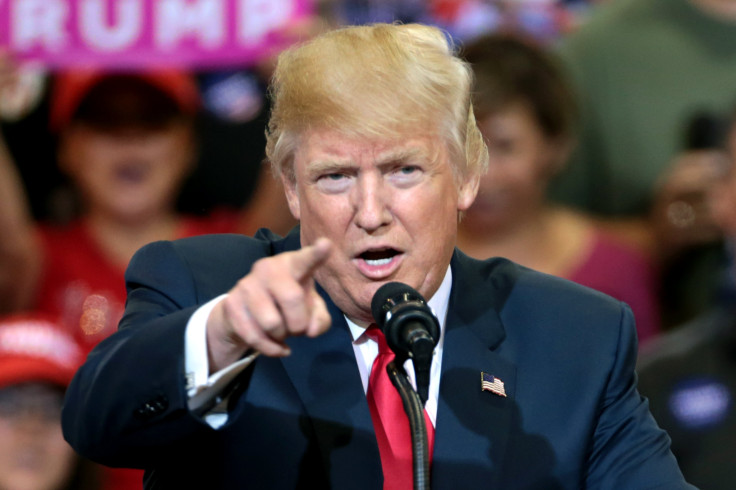Trump's Tax Plan in Turmoil: GOP Hawks Demand Spending Cuts Now
A major sticking point is the bill's proposed cuts to Medicaid, the federal-state programme supporting low-income Americans.

US President Donald Trump is facing internal Republican rift over his sweeping tax and spending bill dubbed as 'big, beautiful bill'.
Republican Senator Ron Johnson of Wisconsin has emerged as a vocal critic, slamming the legislation for its weak stance on controlling the nation's ballooning £28.8 trillion ($38 trillion) debt.
According to a Wall Street Journal report, Johnson's concerns highlight a growing divide among Republicans, with fiscal hawks demanding deeper spending cuts to offset the bill's hefty price tag.
As debates rage in the Senate, the bill's fate hangs in the balance, raising questions about Trump's ability to unify his party and deliver on his campaign promises.
Demand Deeper Spending Cuts Now
Johnson's critique centres on the bill's projected addition of £3 trillion to £4 trillion ($4 trillion to $5.4 trillion) to the federal deficit over the next decade, as estimated by the nonpartisan Congressional Budget Office.
'I couldn't care less if he's upset. I'm concerned about my children and grandchildren. $37 trillion in debt and we're going to add to it? There is no way I'm going to vote for this bill in its current form,' Johnson declared, as reported on X posts.
His stance reflects a broader sentiment among fiscal conservatives who fear the bill's tax cuts, including extensions of Trump's 2017 tax breaks and new incentives for tips and overtime, lack sufficient offsets.
Address Medicaid Concerns Urgently
A major sticking point is the bill's proposed cuts to Medicaid, the federal-state programme supporting low-income Americans.
The legislation could remove 8.6 million people from Medicaid, a move that has sparked resistance from Frank Pallone, senior Democrat on the committee.
'Why are we just talking about numbers, how much we're going to save to pay for these tax cuts,' Pallone questioning the scale of proposed healthcare cuts, per Reuters.
These reductions are seen as a betrayal by some, particularly in light of Trump's campaign pledges to protect vulnerable voters. The push for Medicaid cuts has also drawn ire on social media, with X posts highlighting fears that slashing benefits could harm Republican prospects in the 2026 midterms.
Navigate Debt Ceiling Risks Carefully
The inclusion of a £3.2 trillion ($4.3 trillion) debt ceiling increase in the bill has further fuelled dissent. Senator Rand Paul of Kentucky has vowed to oppose the legislation unless the debt ceiling hike is removed, arguing it signals a failure to address the US's fiscal trajectory.
'If you're going to raise the debt ceiling $4 or $5 trillion, it indicates that the project afoot isn't going to fix the deficit at all,' Paul stated, according to Newsweek.
The urgency of this issue is amplified by Moody's recent downgrade of the US credit rating, citing the nation's debt reaching 124% of GDP. With a potential default looming by summer 2025, Republicans face pressure to balance Trump's tax agenda with fiscal responsibility.
Fiscal Reckoning Looms Large
The internal Republican rift underscores a critical challenge, can the party deliver bold tax reforms without plunging the US deeper into debt?
Johnson's defiance, backed by fiscal hawks, signals a demand for accountability that could reshape the bill in the Senate.
As debates continue, the nation watches closely, fiscal restraint must prevail to avoid a debt spiral that could haunt future generations.
© Copyright IBTimes 2025. All rights reserved.





















